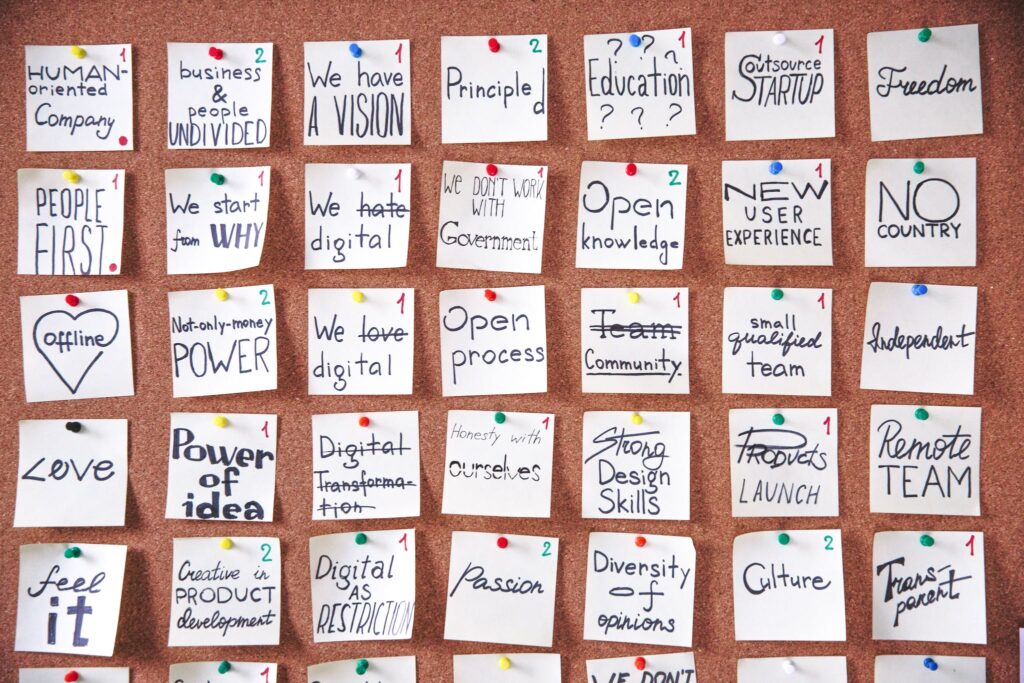Procrastination Busters: Strategies to Overcome and Conquer Delayed Tasks


Table of Contents
Understanding the Psychology of Procrastination
Procrastination is a common behavior that many people experience in their lives. It refers to the act of delaying tasks or putting them off until a later time, often resulting in feelings of stress and a decrease in productivity. Understanding the psychology behind procrastination can provide valuable insights into why individuals engage in this behavior and how it can be managed effectively.
One factor that contributes to procrastination is the concept of instant gratification. Humans have a natural tendency to seek immediate rewards or pleasure, rather than investing time and effort into tasks that may not provide immediate satisfaction. This can lead to prioritizing short-term enjoyment over long-term goals, resulting in procrastination. Additionally, fear of failure or perfectionism can play a significant role in procrastination. The fear of not meeting one’s own high standards or the expectations of others can create anxiety and lead individuals to delay tasks to avoid facing potential failure or judgment.
Identifying the Root Causes of Delayed Tasks
Identifying the root causes of delayed tasks is a critical step in overcoming procrastination and improving productivity. One common cause is poor time management skills. Many individuals struggle with prioritizing tasks effectively, often finding themselves overwhelmed and unsure of where to start. Without a structured approach, it can be easy to succumb to distractions and procrastinate on important responsibilities.
Another factor that contributes to delayed tasks is a lack of clear goals. When individuals are unsure of what they need to accomplish or why, it becomes difficult to stay motivated and focused. Without a sense of direction, it’s easy to fall into the trap of procrastination and continually put off tasks. Identifying and setting clear, realistic goals is an essential part of combating procrastination and making progress.
Breaking Down Tasks into Manageable Chunks
Breaking down tasks into manageable chunks is a fundamental strategy for increasing productivity and reducing procrastination. When faced with a large, daunting task, it’s easy to feel overwhelmed and unsure of where to begin. By breaking it down into smaller, more attainable tasks, you can build momentum and gain a sense of accomplishment as you tick off each item on your list.
One effective approach is to start by identifying the main objective of the task and then breaking it down into smaller sub-tasks or steps. This allows you to focus on specific actions and provides a clearer roadmap to follow. For example, if you need to write a research paper, you can start by setting smaller goals such as conducting research, outlining the main sections, drafting the introduction, and so on. By focusing on one step at a time, you can avoid feeling overwhelmed and make progress towards completing the entire task.
Setting Clear and Realistic Goals
When it comes to achieving success and staying motivated, setting clear and realistic goals is key. By having a clear vision of what you want to accomplish, you are able to create a roadmap that will guide your actions and decisions. It is important to set goals that are attainable and aligned with your capabilities and resources. Unrealistic goals can quickly lead to frustration and demotivation, while setting achievable goals provides a sense of accomplishment and keeps you motivated. Additionally, when setting goals, it is crucial to define them in a way that is specific and measurable. This allows you to track your progress and adjust your efforts accordingly. By setting clear and realistic goals, you are setting yourself up for success and ensuring that your actions are purposeful and focused.

Creating a Structured Schedule and Routine
Creating a structured schedule and routine is an essential aspect of improving productivity and managing time effectively. When we have a well-defined schedule in place, it helps us stay organized and focused, making it easier to accomplish our tasks and goals. Developing a routine involves establishing a set of activities and allocating specific time slots for different tasks throughout the day. This not only ensures that tasks are completed on time but also helps in creating a sense of order and predictability in our lives.
One of the key advantages of having a structured schedule and routine is that it minimizes the occurrence of procrastination. By having a clearly defined plan for our day, we are more likely to adhere to it and avoid putting off tasks until the last minute. Moreover, a well-structured schedule allows for effective time management, enabling us to allocate sufficient time to each task based on its importance and urgency. It helps us prioritize and focus on the tasks that truly matter, ensuring that we make the most efficient use of our time and energy. By following a routine, we can establish a productive rhythm in our lives, making it easier to accomplish our goals and maintain a consistent level of productivity.
Utilizing Time Management Techniques
Managing time effectively is crucial for productivity and success in any realm of life. By employing various time management techniques, individuals can maximize their efficiency and accomplish tasks more efficiently. One such technique is the Pomodoro Technique, which involves breaking the work into short, focused intervals called “pomodoros,” followed by brief breaks. This technique not only helps combat procrastination but also enhances concentration and reduces burnout. Incorporating tools like timers, such as smartphone applications or kitchen timers, can be invaluable in implementing this technique successfully. Additionally, using to-do lists, prioritizing tasks, and setting achievable deadlines aids in organizing workloads and ensuring that important tasks are completed on time.
Another effective technique is “batching” similar tasks together. By grouping similar activities, such as answering emails or making phone calls, individuals can minimize interruptions and increase efficiency. This approach allows for better concentration and reduces the time wasted on context-switching. Moreover, utilizing technology such as productivity apps or project management tools can assist in planning, organizing, and tracking tasks, thereby streamlining workflow. Implementing time management techniques not only improves productivity, but it also helps reduce stress levels by providing a structured approach to work and allowing individuals to allocate their time effectively.
While these techniques can be beneficial, it is important to adapt them to individual preferences and work styles. Experimenting with different approaches and adjusting accordingly can help find the most suitable time management strategy. Ultimately, by utilizing these techniques, individuals can enhance their productivity, accomplish more in less time, and experience a greater sense of fulfillment in both personal and professional endeavors.

Prioritizing Tasks and Eliminating Distractions
Prioritizing tasks is a crucial aspect of effective time management. By identifying the most important and urgent tasks, individuals can allocate their resources efficiently. This involves assessing the significance of each task and arranging them in order of priority. By focusing on high-priority tasks first, individuals can ensure that they are making progress towards their goals and completing essential responsibilities in a timely manner. Additionally, eliminating distractions is key in maintaining focus and productivity. Distractions can hinder progress and lead to procrastination. By creating a conducive environment and implementing strategies to minimize interruptions, individuals can optimize their concentration and accomplish tasks more efficiently.
Cultivating a Productive Environment
Creating a productive environment is essential for minimizing distractions and fostering a focused mindset. One way to achieve this is by organizing your physical space. Remove clutter and unnecessary items from your workspace to reduce visual distractions. Keep essential supplies within reach and arrange them in an organized manner. Additionally, consider the lighting in your environment. Natural light is beneficial for boosting productivity, so if possible, position your workspace near a window or invest in good-quality artificial lighting that mimics natural light.
Another aspect to consider when cultivating a productive environment is the presence of digital distractions. In today’s technology-driven world, it can be challenging to stay focused with constant notifications and temptations at our fingertips. To combat this, create designated periods of uninterrupted work time by turning off unnecessary notifications on your devices. Consider using website blockers or productivity apps that can limit your access to distracting websites or applications. By proactively managing digital distractions, you can create an environment conducive to productivity and enhance your ability to concentrate on the task at hand.
Overcoming Perfectionism and Fear of Failure
Perfectionism and fear of failure can be significant obstacles that hinder productivity and progress. The desire for perfection often leads individuals to set unrealistically high standards for themselves, which can be overwhelming and discouraging. The fear of failure, on the other hand, instills a sense of anxiety and apprehension, preventing individuals from taking risks or pursuing their goals wholeheartedly.
To overcome perfectionism and fear of failure, it is crucial to shift one’s mindset and adopt a more compassionate and realistic approach. Recognizing that perfection is unattainable and that failure is a natural part of the learning process can help alleviate the pressure and allow individuals to embrace imperfections. By reframing failure as an opportunity for growth and improvement, individuals can develop resilience and become more willing to take calculated risks. Additionally, setting realistic goals and breaking tasks into smaller, manageable steps can help reduce the overwhelming nature of perfectionism and fear of failure, making progress more attainable.
Utilizing Motivational Tools and Techniques
Motivation plays a crucial role in our ability to accomplish tasks and achieve our goals. Fortunately, there are various tools and techniques that can help boost motivation and enhance productivity. One such tool is the use of visual cues. By creating a visual representation of your goals or desired outcomes, you can keep them at the forefront of your mind and stay motivated to work towards them. This can be done through the use of vision boards, where you can collect images, quotes, and reminders of your goals and aspirations. Placing this board in a prominent location, such as your workspace or bedroom, serves as a constant reminder of what you are working towards.
Another effective tool for motivation is setting rewards for completing tasks. By incorporating a system of rewards, you create a positive reinforcement for accomplishing your goals. These rewards can range from small treats or breaks to larger incentives that you can enjoy once a significant milestone is achieved. The key is to set rewards that are meaningful and motivating to you personally. This not only provides an extra push to complete tasks but also creates a sense of excitement and anticipation, making the overall process more enjoyable.
In addition to visual cues and rewards, positive self-talk can also be a powerful motivational tool. Our thoughts and beliefs have a significant impact on our actions and behaviors. By consciously incorporating positive affirmations and self-encouragement into our daily routine, we can boost our confidence, self-belief, and motivation. This can be as simple as repeating a mantra or phrase that resonates with you, such as “I am capable of achieving greatness” or “I am motivated and focused on my goals.” By practicing positive self-talk consistently, you can train your mind to be more resilient, optimistic, and driven.
Developing Effective Decision-making Skills
Effective decision-making skills are vital in both professional and personal contexts. When faced with difficult choices, individuals who possess these skills are able to carefully evaluate the available options and make well-informed decisions. This ability can greatly enhance productivity, efficiency, and overall success.
One key aspect of developing effective decision-making skills is the ability to gather and analyze relevant information. By thoroughly researching and understanding the factors at play, individuals are better equipped to make informed choices. This could involve conducting comprehensive literature reviews, seeking expert opinions, or utilizing data analysis techniques. By taking the time to gather and assess information from multiple sources, individuals can make decisions that are based on a solid foundation of knowledge.
Seeking Accountability and Support Systems
One effective strategy for overcoming procrastination is to seek accountability and support systems. Surrounding ourselves with individuals who share similar goals and ambitions can provide us with the necessary motivation and encouragement to stay on track. Accountability partners or support groups can help to keep us accountable for our actions and ensure that we follow through with our commitments.
When seeking accountability and support systems, it is important to find individuals who understand our specific challenges and can provide the right kind of support. This may mean finding someone who has experience in the same industry or field, or someone who has successfully overcome similar obstacles in the past. By regularly checking in with our accountability partners or support network, we can stay focused and motivated on our tasks, knowing that someone else is there to hold us accountable for our progress.
Practicing Self-care and Stress Management
Self-care and stress management are crucial aspects of maintaining overall well-being and productivity. When we neglect our own needs and constantly push ourselves without taking the time to recharge, the effects can be detrimental to both our physical and mental health. Therefore, it is essential to incorporate self-care practices into our daily routines.
One effective self-care technique is to prioritize proper nutrition and hydration. Consuming a well-balanced diet that includes plenty of fruits, vegetables, whole grains, and lean proteins not only provides the necessary nutrients for optimal functioning but also helps boost our mood and energy levels. Additionally, staying hydrated throughout the day is vital for maintaining cognitive function and reducing feelings of fatigue.
In order to effectively manage stress, engaging in regular exercise is highly recommended. Physical activity stimulates the production of endorphins, which are known as the brain’s “feel-good” chemicals. Whether it’s going for a jog, practicing yoga, or simply taking a brisk walk, incorporating exercise into our daily routine can significantly reduce stress levels. Furthermore, activities such as deep breathing exercises, meditation, and engaging in hobbies or activities that bring joy can help promote relaxation and alleviate stress.
Taking the time to care for oneself is not a luxury but a necessity for maintaining a healthy and balanced lifestyle. By incorporating self-care practices into our daily lives, we can better manage stress and enhance our overall well-being, leading to increased productivity and fulfillment.
Building Resilience and Maintaining Consistency
Building resilience and maintaining consistency are crucial factors in achieving long-term success and overcoming hurdles. Resilience refers to the ability to bounce back from setbacks, while consistency involves the dedication to staying on track and following through with plans and goals.
To build resilience, it is important to develop coping mechanisms and strategies to navigate challenges. This may include practicing self-care, such as engaging in activities that promote relaxation and stress reduction. Additionally, seeking support from friends, family, or professionals can provide valuable guidance and encouragement during difficult times.
Maintaining consistency requires discipline and focus. Establishing a structured schedule and routine can help create a sense of stability and make it easier to stay motivated and on track. Prioritizing tasks and breaking them down into manageable chunks can also make them more approachable and less overwhelming.
In summary, building resilience and maintaining consistency are essential for achieving success in any endeavor. By developing coping strategies and seeking support, individuals can navigate challenges and setbacks more effectively. Additionally, establishing a routine and breaking down tasks can help maintain a sense of focus and progress. In the next sections of this article, we will delve deeper into specific techniques and tools that can help foster both resilience and consistency.
How can understanding the psychology of procrastination help in building resilience and maintaining consistency?
Understanding the psychology of procrastination allows individuals to identify the underlying factors that contribute to delayed tasks. By addressing these root causes, individuals can develop strategies to overcome procrastination and build resilience and consistency.
What are some common root causes of delayed tasks?
Some common root causes of delayed tasks include perfectionism, fear of failure, lack of motivation, poor time management, and being overwhelmed by the size or complexity of a task.
How can breaking down tasks into manageable chunks help with productivity?
Breaking down tasks into smaller, more manageable chunks makes them less overwhelming and easier to approach. This approach increases productivity as it allows individuals to focus on completing smaller portions of the task, leading to a sense of accomplishment and motivation to continue.
Why is setting clear and realistic goals important for maintaining consistency?
Setting clear and realistic goals provides individuals with a clear direction and purpose. It helps in prioritizing tasks, managing time effectively, and maintaining focus. Having achievable goals also boosts motivation and encourages consistency in working towards those goals.
How can creating a structured schedule and routine enhance productivity?
Creating a structured schedule and routine helps in organizing tasks and allocating time for different activities. It establishes a sense of order, reduces decision fatigue, and promotes consistency in completing tasks.
What are some effective time management techniques to improve productivity?
Some effective time management techniques include prioritizing tasks, setting deadlines, using productivity tools or apps, practicing the Pomodoro technique (working in intervals with breaks), and delegating tasks when possible.
How can one prioritize tasks and eliminate distractions effectively?
Prioritizing tasks involves identifying the most important and urgent tasks and giving them high priority. Eliminating distractions can be achieved by creating a dedicated workspace, turning off notifications, setting boundaries with colleagues or family members, and using productivity apps that block or limit access to distracting websites or apps.
How does cultivating a productive environment contribute to consistency?
A productive environment minimizes distractions, provides necessary resources, and promotes focus and concentration. It helps individuals maintain consistency by creating a space conducive to productive work.
How can one overcome perfectionism and fear of failure to maintain consistency?
Overcoming perfectionism and fear of failure involves setting realistic expectations, accepting imperfections and mistakes as part of the learning process, reframing negative thoughts, and focusing on progress rather than perfection. By doing so, individuals are more likely to maintain consistency in their tasks.
What are some motivational tools and techniques that can help in maintaining consistency?
Motivational tools and techniques include setting rewards for completing tasks, visualizing success, using positive affirmations, finding a source of inspiration or accountability, and breaking down long-term goals into smaller milestones.
How can developing effective decision-making skills contribute to maintaining consistency?
Developing effective decision-making skills allows individuals to make informed choices, prioritize tasks, and allocate time and resources efficiently. This skill helps in maintaining consistency by enabling individuals to make decisions that align with their goals and priorities.
Why is seeking accountability and support systems important for building resilience and maintaining consistency?
Seeking accountability and support systems provide individuals with external motivation, guidance, and encouragement. It helps in staying accountable and consistent in completing tasks by having others hold them responsible for their actions.
How does practicing self-care and stress management contribute to maintaining consistency?
Practicing self-care and stress management techniques helps individuals maintain their physical and mental well-being. This, in turn, enhances focus, productivity, and resilience, allowing for a more consistent approach to tasks and responsibilities.
Why is building resilience important for maintaining consistency?
Building resilience allows individuals to bounce back from setbacks, adapt to challenges, and stay committed to their tasks and goals. It helps in maintaining consistency by enabling individuals to persevere and continue working towards their objectives despite obstacles or difficulties.







